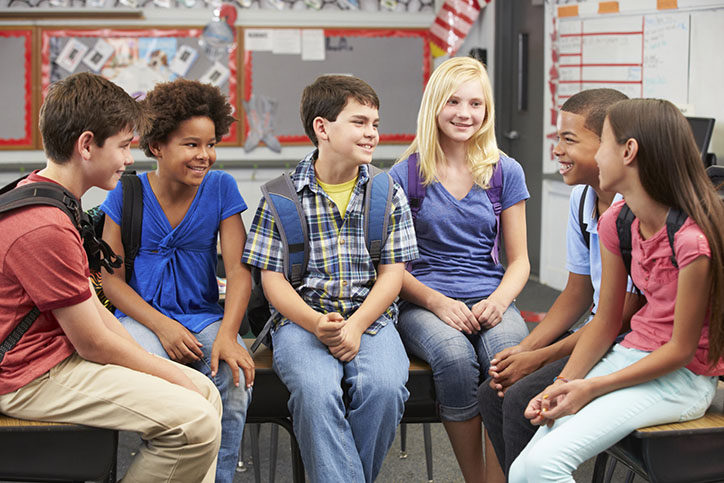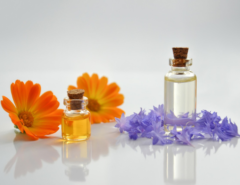People often think that poison centers are only for little kids, but that’s not true. Poison centers are for everyone, including tweens and teens. We use the term ‘tween’ for 6-12-year-olds and ’teen’ for 13-19-year-olds. They accounted for 13.8% of cases at the Maryland Poison Center (MPC) in 2020. As children get older, they are more independent in their day-to-day life, leading to the potential for more poison exposures. It’s important that tweens and teens are familiar with safety tips and tools to keep themselves safe. If you have or work with a tween or teen, share this information with them!
What is a Poison?
Let’s all be on the same page about what a poison is. We define a poison as anything that is taken in the wrong way, wrong amount, or by the wrong person. In short, many things can be considered a poison, not just medicines or chemicals!
Swallowing a substance is the most common way people are poisoned. You can also be poisoned by inhaling something, getting something on your skin, or getting something in your eye.
Top Five Exposures in 2020
Here are the top five substance categories that tweens and teens were exposed to last year:
- Pain Relievers
- Antidepressants
- Stimulants and Street Drugs – in this age group, these are commonly cannabis and medicines for Attention-Deficit/Hyperactivity Disorder (ADHD)
- Antihistamines
- Cosmetics and Personal Care Products – hand sanitizer, soap, mouthwash, and perfume
Many of these exposures are unintentional. As tweens and teens find their independence, they may make dosing mistakes or unintentionally use a product in the wrong way. There are some cases where the exposure is intentional due to self-harm or substance abuse.
Over-The-Counter Medicine Safety
Over-the-counter (OTC) medicines can be bought at the store or online without a prescription. These include medicines that treat pain, allergies, cold and flu symptoms, etc. They can be pills, liquid, or even ointment. Many people think that OTC medicines are “safer” than prescription medicine, but this is not true. All medicines can be harmful if they are not used correctly.
Every OTC medicine has a label that includes instructions on how much to take and how often to take it. Always read the label before taking a medicine. Taking more than the directed amount will not help you feel better faster. Scholastic’s OTC medicine safety website includes great tools to learn how to read a medicine label and more about OTC medicines. Always follow the label directions.
If you use more than one OTC medicine, be sure to check the active ingredients in the medicines. If two medicines have the same active ingredients, you can be taking too much of that ingredient. Always be sure to ask a trusted adult or call the MPC at 1-800-222-1222 if you have a question about medicines. It is always better to ask first.
Prescription Medicine Safety
Prescription medicines are only available with a prescription from a health care provider. They are not always “safer” than OTC medicines. Again, all medicines can be harmful if they are not used correctly. They are also not always “safer” than street drugs. Only take prescription medicines that are prescribed for you. Do not share your prescription medicines with other people. Always follow the instructions on the label each time you take it.
The medicine bottle may contain instructions and warnings, such as taking the medicine with food, causing drowsiness (being tired) when taking it, or not taking it with other specific medicines. Review these instructions and warnings with a trusted adult or your health care provider. Remember to always ask questions if you have them!
Stimulant Safety
Stimulants aren’t just prescription medicines or other drugs; they also include caffeine and nicotine.
When you have too much caffeine, it can be harmful and cause unwanted side effects, such as:
- Jitters (arms and/or legs shaking)
- Anxiousness
- Nausea
- Trouble sleeping
- Headache
- Dizziness
- Increased heart rate
Overdosing on caffeine is dangerous and can cause:
- Confusion
- Hallucinations
- Vomiting
- Seizures
Children under the age of 12 are not recommended to have any form of caffeine. In addition, the American Academy of Pediatrics suggests that 12-18-year-olds limit the amount of caffeine they have to 100mg per day at most. That is equal to about two 12 oz. cans of a caffeinated soda or one 8 oz. cup of coffee. Tweens and teens may “stack” caffeine products, meaning taking multiple products together to get a stronger caffeine effect. This can include caffeinated beverages (e.g., soda, tea, energy drinks) and caffeine tablets. Stacking is dangerous and will cause unwanted effects on the body. More information on caffeine can be found on our previously published What You Should Know About Caffeine blog.
Cannabis
Scientists and health care providers do not have enough information on cannabis use in teens yet. Current research suggests that the use of cannabis in the developing brain can cause changes in different parts of the brain, including changes in memory, mood, and/or attention. If you or someone you know is experiencing unwanted or unexpected effects from cannabis, call the poison experts right away.
Tweens and teens can call the poison center on their own, without needing an adult’s permission. Any call to the MPC is free and confidential. Our poison specialists will answer your questions and help you if you are experiencing an unexpected or unwanted effect from using a product. We are ready to take your call 24/7/365 at 1-800-222-1222.





Leave a Reply